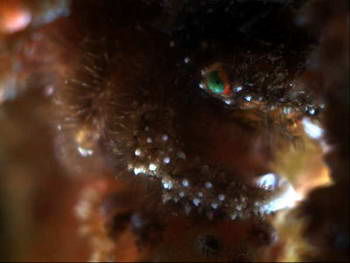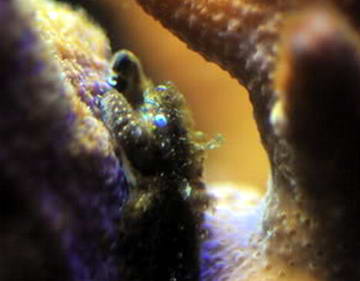This mirror is being hosted with the permissions of the original content creator for preservation and educational purposes.
Presented by Charles & Linda Raabe
Mactan Island, The Philippines
© 2008 All Rights Reserved
" Stony corals are the foundation of coral reef ecosystems and form associations
with other reef species. Many of these associations may be ecologically
important and play a role in maintaining the health and diversity of reef
systems, rendering it critical to understand the influence of symbiotic
organisms in mediating responses to perturbation. This study demonstrates the
importance of an association with trapeziid crabs in reducing adverse effects of
sediments deposited on corals. In a field experiment, mortality rates of two
species of branching corals were significantly lowered by the presence of crabs.
All outplanted corals with crabs survived whereas 45-80% of corals without crabs
died within a month. For surviving corals that lacked crabs, growth was slower
and tissue bleaching and sediment load were higher. Laboratory experiments
revealed that corals with crabs shed substantially more of the sediments
deposited on coral surfaces, but also that crabs were most effective at removing
grain sizes that were most damaging to coral tissues. The mechanism underlying
this symbiotic relationship has not been recognized previously, and its role in
maintaining coral health is likely to become even more critical as reefs
worldwide experience increasing sedimentation. "
It is our hope that by documenting the coral and crab species
found as commensals we can help to determine which crab species should
be targeted for breeding efforts. If we are to ever transplant any of
the branching corals out onto the reefs as a restoration project, we
will have to include a variety of coral crab species as well.
Specimen #1
Specimen #2
This mirror is being hosted with the permissions of the original content creator for preservation and educational purposes.


 Trapezia digitalis
Trapezia digitalis
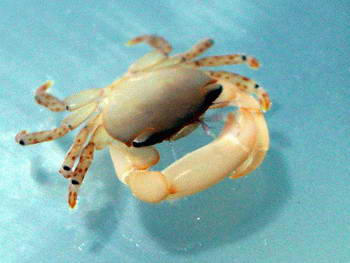 Tetralia sp.
Tetralia sp.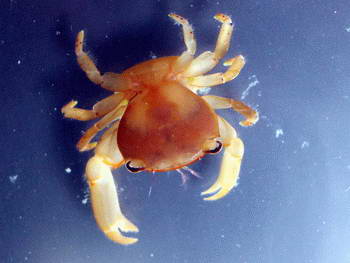 Tetralia glaberrima
Tetralia glaberrima
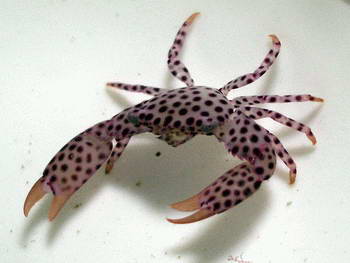 Trapezia rufopunctata
Trapezia rufopunctata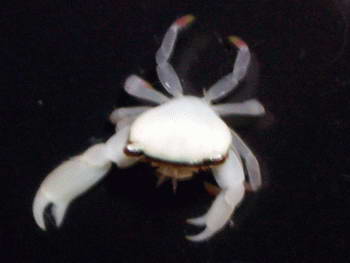 Tetralia nigrolineata
Tetralia nigrolineata
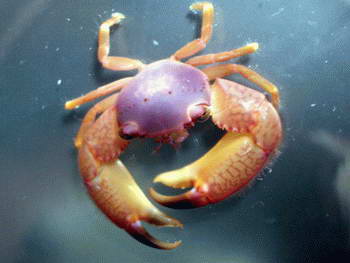 Tetralia cymodoce
Tetralia cymodoce 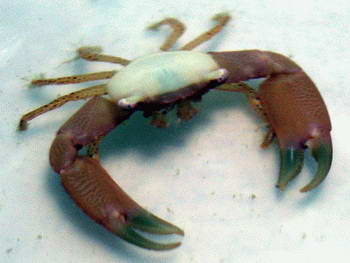 Trapezia guttata
Trapezia guttata 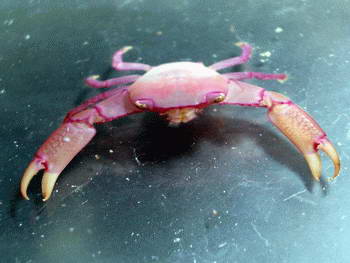 Trapezia serenei
Trapezia serenei 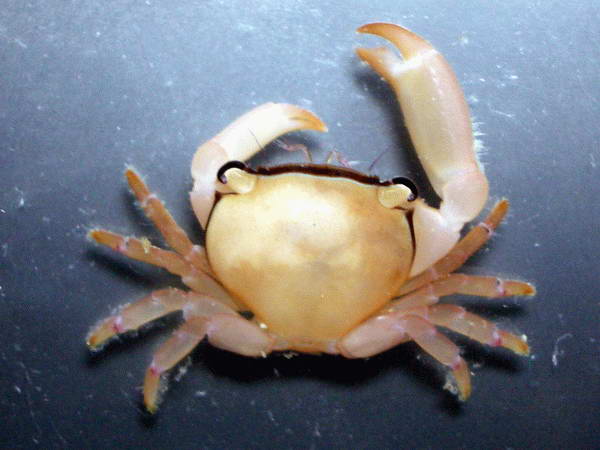 Tetralia nigrolineata
Tetralia nigrolineata 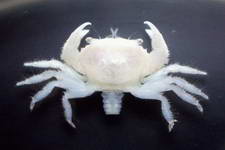 Jonesius triunguiculatus
Jonesius triunguiculatus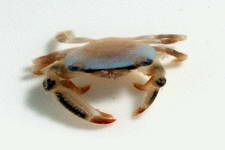 Tetralia cinctipes
Tetralia cinctipes 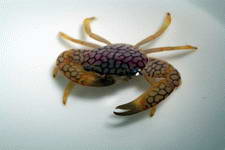 Trapezia septata
Trapezia septata